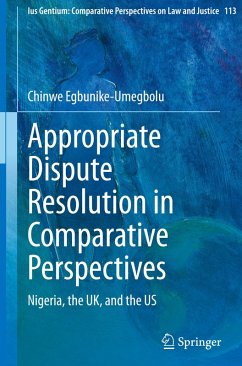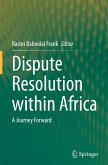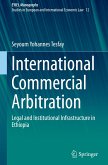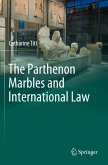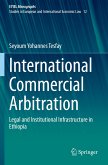This book explores the various types of Appropriate Dispute Resolution (ADR) applied in Nigeria, the UK, and the US. It critically examines the effectiveness of mediation, arbitration, restorative justice, collaborative law, and online dispute resolution (ODR) in settling disputes or conflicts, while also demonstrating the benefits of ADR and multi-door courthouses (MDCs). The book provides a concise introduction to the resolution of disputes or conflicts in Africa prior to the advent of colonial rule. It suggests that a 'legal transplant' can also take place from a less complex society to a more complex one, contrary to the general belief that legal transplants usually proceed from a more complex society to a less complex one.
The book aims to help people understand ADR mechanisms and the advantages of settling disputes using means other than litigation. It presents Traditional African Methods of Settling Disputes (TAMSD), Early Dispute Resolution (EDR), arbitration, negotiation, ODR, collaborative law, restorative justice, conciliation, ombuds, and early neutral evaluation as viable alternatives. It also highlights the need for clinical legal education and effective messaging that highlights the benefits of ADR compared to traditional litigation. In turn, it analyses the use of ADR, especially mediation and collaborative law, to settle disputes in criminal law, restorative justice, employment law, and business and human rights due diligence/violation cases. Further, the book demonstrates that criminal matters are now under the scope of ADR via Restorative Justice Door.
The book discusses the skills, techniques, and relevant statutory frameworks for each field of Appropriate Dispute Resolution and provides national and international examples of the application of the relevant principles. Addressing the fields of Appropriate Dispute Resolution (ADR), criminal law, civil law, business management, psychology, employment law, humanresource management, and African studies, it will appeal to a wide readership.
The book aims to help people understand ADR mechanisms and the advantages of settling disputes using means other than litigation. It presents Traditional African Methods of Settling Disputes (TAMSD), Early Dispute Resolution (EDR), arbitration, negotiation, ODR, collaborative law, restorative justice, conciliation, ombuds, and early neutral evaluation as viable alternatives. It also highlights the need for clinical legal education and effective messaging that highlights the benefits of ADR compared to traditional litigation. In turn, it analyses the use of ADR, especially mediation and collaborative law, to settle disputes in criminal law, restorative justice, employment law, and business and human rights due diligence/violation cases. Further, the book demonstrates that criminal matters are now under the scope of ADR via Restorative Justice Door.
The book discusses the skills, techniques, and relevant statutory frameworks for each field of Appropriate Dispute Resolution and provides national and international examples of the application of the relevant principles. Addressing the fields of Appropriate Dispute Resolution (ADR), criminal law, civil law, business management, psychology, employment law, humanresource management, and African studies, it will appeal to a wide readership.

